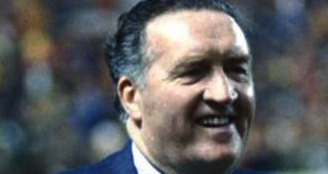JOCK STEIN was born on this day in Burnbank, South Lanarkshire – 101 years ago.
CQN have been paying tribute to Celtic’s legendary manager on a special day.
In another EXCLUSIVE, author Alex Gordon, who has written twenty-four books and fifteen on Celtic, travels back in time to his early days on the Daily Record sports desk as a teenage sub-editor.
This is Alex’s personal memory of the club great which appeared in his first memoirs, entitled ‘Jinx Dogs Burns Now Flu’, published by Ringwood in 2015.
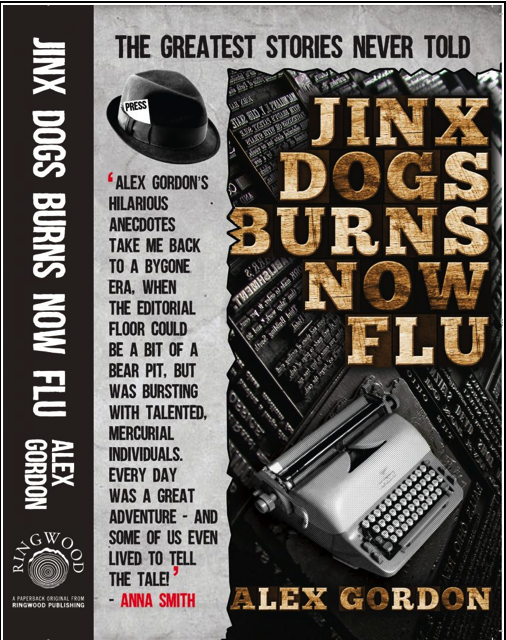
Please enjoy.
GEORGE TAYLOR sounded an awful lot like Jock Stein. I discovered very quickly there was a very good reason for that; George Taylor was, in fact, Jock Stein.
If Jock Stein hadn’t attained legendary status as manager of Celtic, I have absolutely no doubt he would have been a roaring success in PR. Big Jock was light years ahead of anyone else in football after he returned to take over as team boss of an ailing Parkhead side in March 1965.
His successes as a football manager are well documented. However, I was always taught to write a story for the man who had just dropped in from the moon and required background on a story he was reading for the first time, so here’s his silverware collection: ten league championships, nine Scottish Cups (one with Dunfermline), six League Cups and, of course, one European Cup.
Back in December 1967, after I had just joined the Daily Record Sports Desk, I was often left holding the fort between 9pm and 10pm while the older sub-editors went for their break, almost exclusively in the general direction of the Garrick Bar. The laws of the land of the time prevented me from working beyond 10pm.
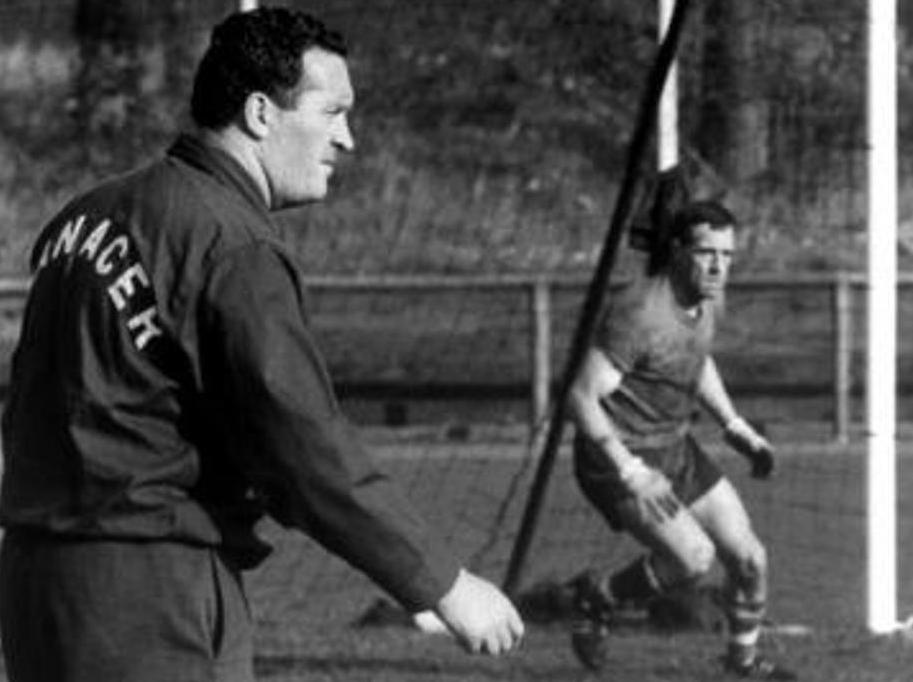
WATCHING ON…Jock Stein keeps an eye on training with Ronnie Simpson putting in a good shift.
It would be another three years, when I reached eighteen, that my shift would change from 3pm to 10pm to 5pm to 1am. I found that sixty minutes on my own at the desk of Scotland’s national newspaper to be very illuminating; especially when George Taylor called.
One of the first of our ‘chats’ came at the start of February 1968. I answered the phone and on came the gruff tones of ‘George’.
“Any writers there, son?” he always asked.
I gave him the stock reply: “Just me and I’m nobody.”
“Aye, we’re all somebody,” he would say. “Can you take this down, please? Celtic are going to play a Friendly with Newcastle United at St. James’s Park on Saturday, February 17. Three o’clock kick-off. A full team will turn out. Do you want me to repeat that?”
I went over it again and he agreed I had got it word for word.
“Make sure you get that in the paper tomorrow. Okay?” he said.
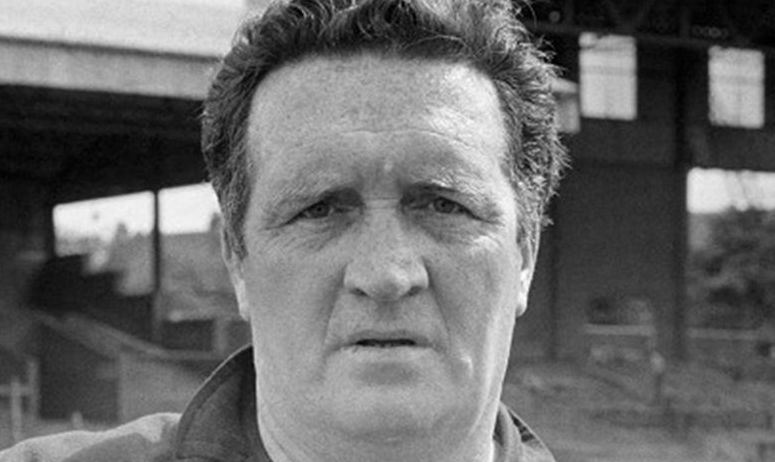
THE PR GENIUS…Jock Stein – or is it George Taylor?
I had to ask. “Excuse me, Mr Taylor, but how do you know this? I can’t put anything in the paper until I’m certain of the facts.”
My query was met with laughter. I had long suspected George Taylor to be Jock Stein and the guy appeared to know an awful lot of what was going on within the walls of a certain team in the east end of Glasgow.
“Are you Jock Stein?” I blurted.
“Naw, naw, son, I’m no’ Jock Stein. I’m George Taylor, Hughie Taylor’s brother. Did you no’ know that? Just make sure you get that story in the paper, okay?”
As far as I was aware, Hughie Taylor, our top sportswriter, didn’t have a sibling. I knew, though, that there was every chance that Hughie would still be in the Garrick at that very moment. I raced round to the Waterloo Street pub to give Hughie the news.
“Who told you this?” he asked. “Your brother,” I answered. Hughie smiled, obviously in on the joke. “I don’t have a brother, but I know George. The story will be good; you better get it in the paper.”
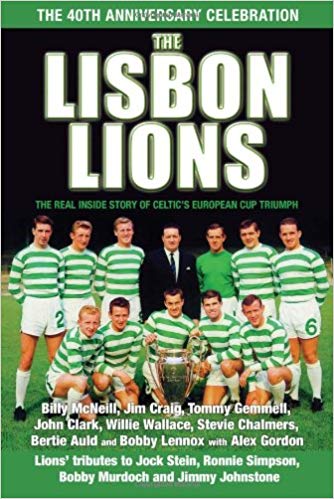
READ ALL ABOUT IT…Alex Gordon’s tribute book to the Lisbon Lions.
I sprinted back to the desk and wrote out the information in long hand – I was quicker at writing than typing at that stage – and sent the truncated story to the Caseroom department to be included in the ‘Stop Press’ gap in the back page. It was normally printed in red ink. If you don’t know what ‘Stop Press’ was in a newspaper in the sixties and seventies, I can only say I envy you your youth.
It was for little snippets that would bypass the requirement of having a pre-planned slot on the back page. The story was then taken out of the ‘Stop Press’ spot and rewritten for a later edition of the newspaper.
I can look back now and shudder if that had been one of those hoax callers who derive so much pleasure in dropping unsuspecting innocents in the brown stuff.
Thousands of Celtic fans travelled to Tyneside on that particular Saturday – a crowd of 38,790 was recorded – to watch their team, with the likes of Lisbon heroes Ronnie Simpson, Billy McNeill, Tommy Gemmell and Jimmy Johnstone in the line-up – lose 1-0. I found it difficult to comprehend that I was one of the first persons on the planet to have knowledge of the arrangement of this game.

SMILES BETTER…Celtic legend Billy McNeill and author Alex Gordon share a joke at Celtic Park.
Now, I realise this may be a small point, but I believe it shows how clued up and tuned in Jock Stein was to the need for Celtic to claim column inches in Scotland’s national newspapers. Actually, he was revolutionary in that role. Nowadays, there are press conferences called to notify the press of press conferences. Back then, though, there was no such thing.
Rangers, for instance, still sent letters to a journalist of their choice at a newspaper to ‘cordially invite’ them to a meeting with their manager. Normally, they gave two days’ notice.
Jock Stein brought an immediacy to the role. Whereas other football clubs plodded along the archaic path of sending communications through the post, he would pick up the phone and go straight through to a Sports Desk, have a chat, plant the story and move on to another newspaper. He did this without the aid of a PR department. In truth, Rangers and others were not so much sucked into a publicity vacuum as blown away by an unstoppable hurricane.
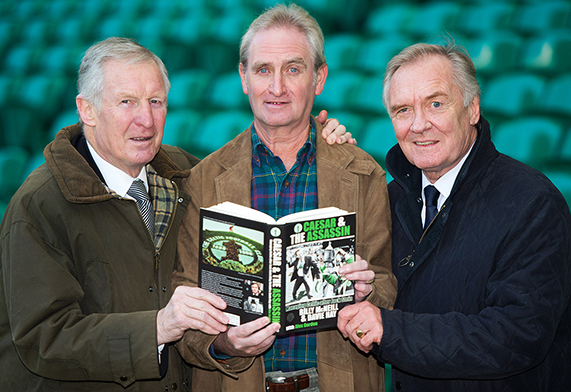
THREE CHEERS…Alex Gordon is flanked by club greats Billy McNeill and Davie Hay at the launch of his book ‘Caesar and The Assassin’ – the story of managing Celtic after Jock Stein.
Anyone brought up on a staple diet of Sky TV will no doubt find it hilarious that there was no set routine for the press to talk to managers or players after a game. A hack might get lucky and catch a player leaving the ground, but it was as rare as hen’s teeth for anything to be pre-arranged.
Rangers manager Scot Symon, for instance, so rarely talked to newspapermen or other media outlets that hardly anyone knew what he actually sounded like. That’s a fairly absurd situation when you consider he was team boss at Ibrox for THIRTEEN years and had been registered as a player for another nine. No-one can remember him doing a TV or radio broadcast.
Bertie Auld would often insist: “The foxes took to the hills when Big Jock was in town.”
It’s intended as a compliment. Jock Stein saw an opening for him to exploit on behalf of Celtic. He would often make time for the Sunday newspaper reporters after a game on a Saturday while inviting the daily hacks to Celtic Park early on a Sunday afternoon where, after some 24 hours to digest what had happened in the previous game, he would always give them something newsworthy.
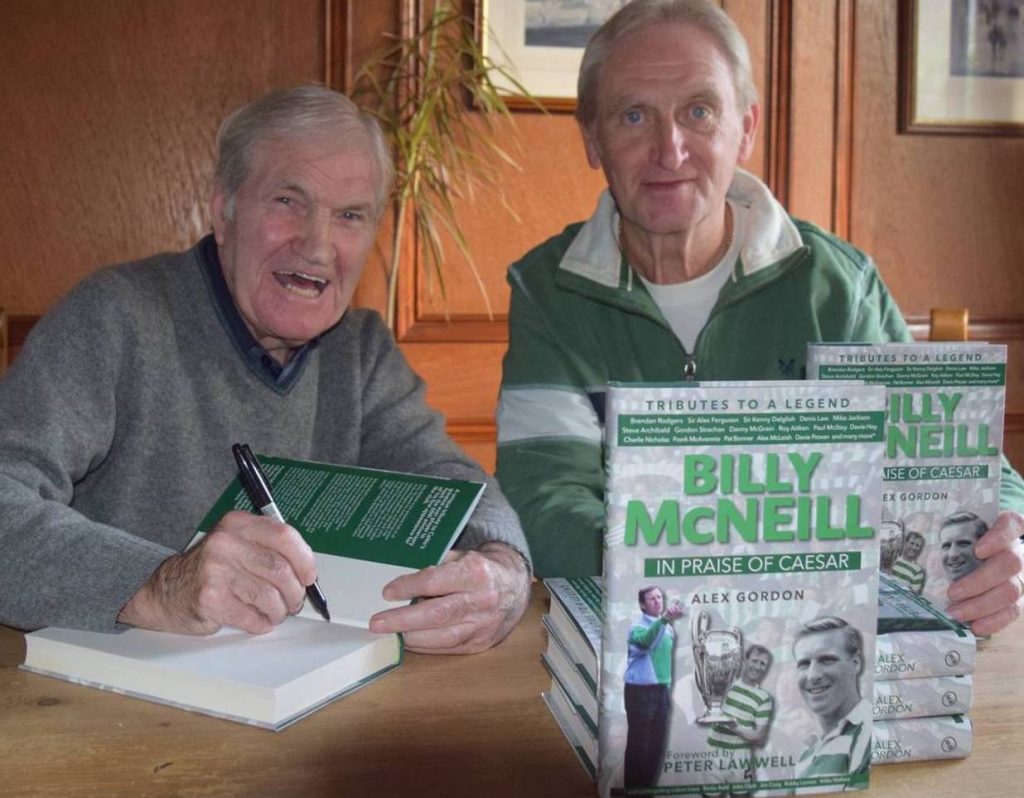
SIGN HERE, PLEASE…Bertie Auld autographs some copies of Alex Gordon’s tribute book to Billy McNeill, ‘In Praise of Caesar’.
The reporters were being spoonfed stories and they weren’t going to complain. When the pages were being drawn up for the Monday editions of the papers, a massive space was always left for Celtic because Sports Editors were well aware that something of note would be coming from Jock Stein that day.
It took Rangers years to get wise to this ‘tactic’ by their rival across the Clyde. Rangers could have a particularly good result on a Saturday, Celtic might scrape through and they would more often than not be the greater presence on the back pages on Monday. Simple and effective.
Here’s another little gem that marked Jock Stein as being more than just slightly streetwise. He would often plan ahead to make certain Rangers did not have a free run at the back pages. The Ibrox side could be about to play a big game with Celtic having a free day and, naturally enough, that would mean the men from Govan commandeering precious space in the nationals.
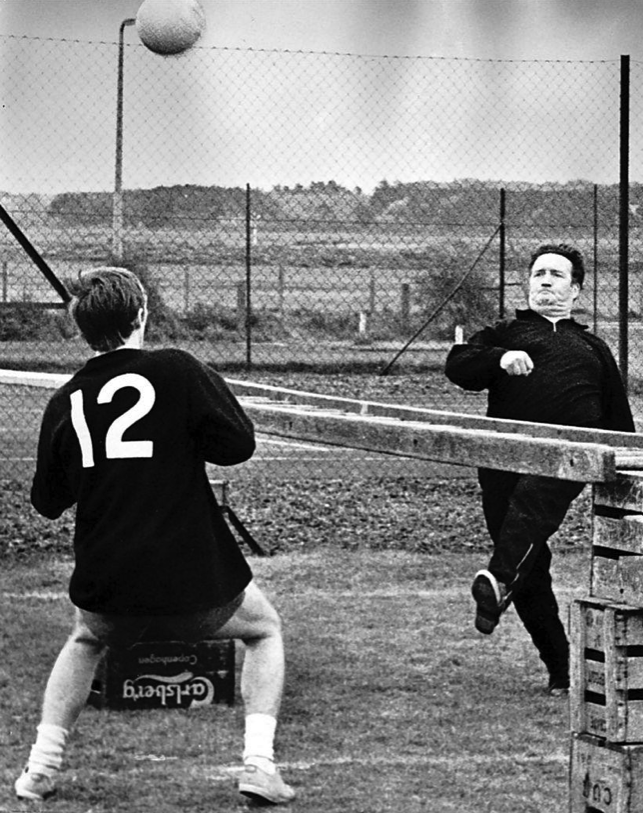
HEAD BHOYS…Jock Stein and Davie Hay go through a training routine at Seamill.
Big Jock would go into overdrive in his bid to hijack the back page and sabotage the attempts of his club’s oldest foes.
Rangers were due to play Dundee in a Scottish Cup-tie at Ibrox on February 17 1974. Sunday football was unusual in the seventies – satellite TV was still almost two decades away – and this encounter had caught the public’s imagination. (A crowd of 64,672 turned out that afternoon.)
Big Jock knew he would have to derail the Rangers publicity juggernaut. He had been pondering over a move for an Anglo-Scot to boost his first team squad. Big Jock had the deal in the bag days before he unveiled the signing, coincidentally on the same Sunday Rangers were playing host to Dundee.
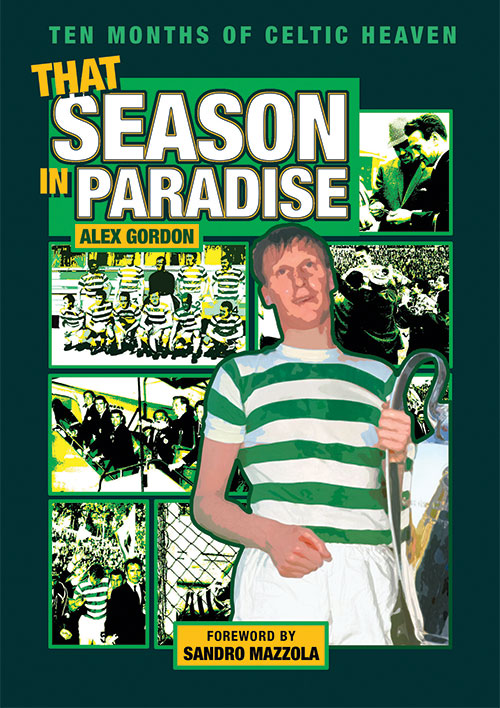
READ ALL ABOUT IT…Alex Gordon’s tribute book to the unbeatable 1966/67 season.
Jimmy Bone cost £25,000 from Sheffield United and was paraded that very afternoon meaning Rangers no longer had exclusive rights to the back pages of the press.
On this occasion, though, the Celtic manager might have wondered if it had been worth his bother; the Ibrox side were thumped 3-0 on their own pitch by the Tayside outfit.
He didn’t often get it wrong as he pushed Celtic to the forefront on the pitch and in the press. Certainly, he wasn’t shy of appearing in front of a camera or a microphone. Unlike Scot Symon at Rangers, everyone was well aware of the thick tones of Jock Stein.
Me? I thought he sounded uncannily like a guy called George Taylor.

